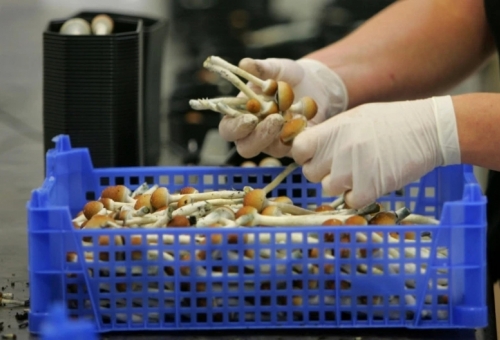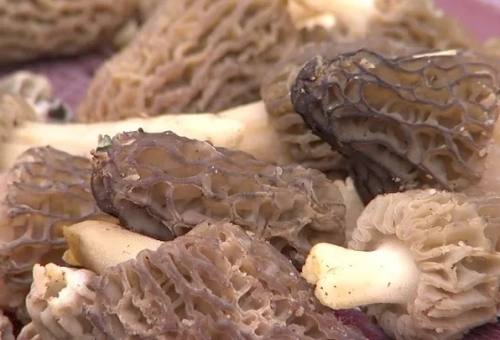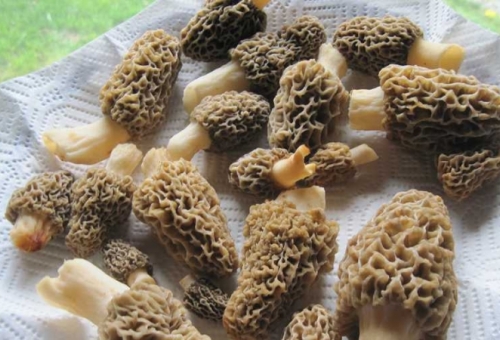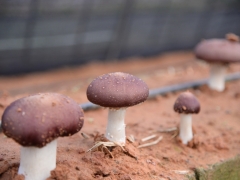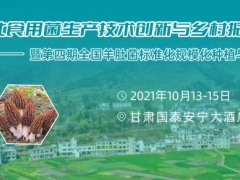
With the winter rains, renewing grasses spread a welcome green blanket over the hills and fields. The rains also stimulate lots of other growth, including mushrooms. So it’s an appropriate time to give a warning and an invitation.
It’s against the rules to harvest and remove any plants or animals from the East Bay Regional Parks, except, of course, for state-regulated fishing at district lakes. The regional parks are essentially preserves where plants and animals are supposed to be left undisturbed. This is especially important with regard to mushrooms, some of which are extremely poisonous. The most dangerous mushrooms commonly found in the Bay Area are the Death Cap (Amanita phalloides) and Western Destroying Angel (Amanita ocreata), both of which contain powerful toxins. Symptoms don’t usually appear until up to 12 hours after consumption. Severe gastrointestinal distress progresses to liver and kidney failure if treatment is not sought immediately.
“Both the Death Cap and Western Destroying Angel grow near oak trees,” said naturalist Trent Pearce, who works at Tilden Nature Area near Berkeley. “They can be lethal to both humans and pets if consumed.”
Dog owners should keep a close watch on their pets during the winter months and contact a veterinarian immediately if they believe the pet has eaten a toxic mushroom. The Death Cap is a medium to large mushroom that typically has a greenish-gray cap, white gills, a white ring around the stem and a large white sac at the base of the stem. The Western Destroying Angel is a medium to large mushroom that usually has a creamy white cap, white gills, a white ring around the stem that disappears with age and a thin white sac at the base. Other mushrooms in this area that contain deadly toxins include Galerina and Lepiota species. In short, if you collect mushrooms in areas where it is permitted, expertise is a must. For most of us, the best place for mushroom gathering is the local supermarket.
If you want to learn more about mushrooms and see some in the wild, join naturalist Kevin Dixon on a mushroom safari from 10 a.m. to noon Jan. 12 at Briones Regional Park near Martinez. Meet Kevin at the Alhambra Staging Area. It’s off of Reliez Valley Road about a mile south of the intersection with Alhambra Valley Road. For information, call 888-327-2757, ext. 2750. And staff at the Tilden Nature Area near Berkeley plan a Fungal Fair from 10 a.m. to 4:30 p.m. Jan. 25-26 at the Environmental Education Center. The center is at the north end of Central Park Drive. There will be more on the fair in a future column.
Fremont: Another seasonal phenomenon in the regional parks is the annual overwintering of monarch butterflies at Ardenwood Historic Farm in Fremont. Unfortunately, for unknown reasons, very few monarchs have appeared this year in Ardenwood’s eucalyptus groves. However, programs are still planned that describe the butterflies’ life cycle and emphasize how the insects can be protected.
There are programs at the Ardenwood greenhouse from 2 to 2:30 p.m. every Saturday and Sunday in January, and from 11 to 11:30 a.m. Jan. 12 and 19. A slide presentation on monarchs is scheduled at the Ardenwood granary from 10:30 to 11:30 a.m. Jan. 26. The historic farm is at 34600 Ardenwood Blvd., just north of Highway 84. For information, call 510-544-2797.
Also in Fremont: Nearby at Coyote Hills Regional Park, there’s a rare opportunity to see changing wildlife activity at dusk during a hike from 4:30 to 6 p.m. Jan. 11. The hike is for those age 6 and older, and registration is required. To register, call 888-327-2757, select option 2, and refer to program 27787.
And there’s more. The park’s new Dumbarton Quarry Bayside Campground is scheduled to open this year. Naturalist Francis Mendoza will lead a preview hike to the site for those age 12 and older from 1:30 to 4 p.m. Jan. 12. It’s an easy 2½-mile out-and-back walk, during which Francis will talk about the history of the quarry and campground. Meet him at the visitor center. Coyote Hills is at the end of Patterson Ranch Road off Paseo Padre Parkway. For information, call 510-544-3220.
Alameda: At Crab Cove Visitor Center in Alameda, naturalist Morgan Guenther will host two adult craft night social gatherings. Both are from 5:30 to 7 p.m. One is on Jan. 12, the other on Feb. 8. The project on Jan. 12 is macramé plant hangers from T-shirt yarn. On Feb. 8 it’s picture frames and wall hangings from magazine paper reeds. The park will provide the project, instruction and supplies. Registration is required, and there’s a fee of $10 ($12 for nondistrict residents). To register, call 888-327-2757. Select option 2 and refer to program 27675 for Jan. 12, 27684 for Feb. 8. Crab Cove is at 1252 McKay Ave. Call 510-544-3187.
Online: The new year brings lots of new programs to the regional parks. For full information, visit the East Bay Regional Park District’s website, ebparks.org.





